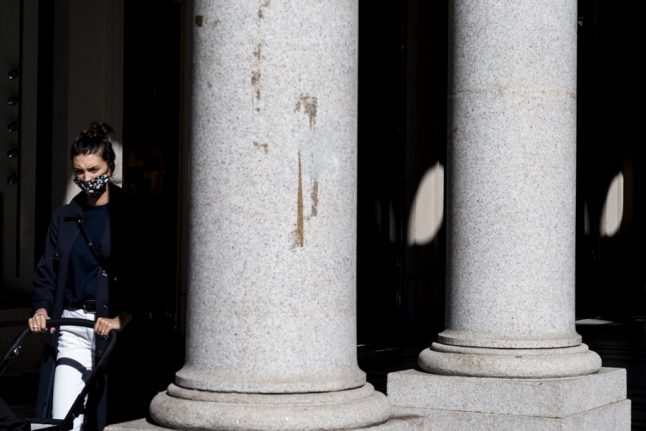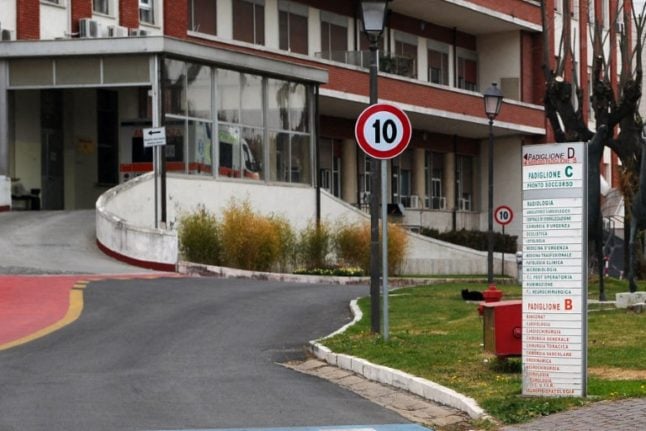
HEALTH
Covid-19: Health experts suggest Christmas lockdown as Italy reports record rise in new cases
Italy has reported over 7,000 new cases of coronavirus in a day for the first time ever, as scientific experts warned of pressure on hospitals and said a "circuit breaker" lockdown may be necessary by Christmas.
Published: 14 October 2020 17:26 CEST

Photo: Marco Bertorello/AFP
Italy's health authorities on Wednesday reported 7,332 new cases within the past 24 hours, a figure that exceeds the record high of 6,557 seen on March 21st.
The sharp increases recorded recently are thought to be partly explained by a much higher number of tests being carried out. Between Tuesday and Wednesday there were 152,196 tests – also a record high number since the start of the pandemic.
However, the percentage of swabs coming back positive has also risen, to 8.4%. (The figure on Tuesday was 5.4%)
There were 43 deaths.
25 more patients were admitted to intensive care (for a total of 539) and there were almost 400 further non-ICU hospitalisations (5,470 overall).
Earlier on Wednesday a leading Italian virologist warned that a second lockdown could be needed over Christmas, saying it would allow Italy to “reset the system, lower the transmission of the virus and boost contact tracing.”
Andrea Crisanti, virologist of the University of Padua, told Italy's Rai News 24 channel: “As cases increase, the ability of contact tracing and testing decreases.”

When this happens “you get into a vicious circle that pushes the transmission of the virus up”.
The professor cited a two-week “circuit breaker” lockdown proposed by scientific experts in the UK, which is still being considered by the British government.
Experts in the UK say a two-week total lockdown over half-term or Christmas holidays could cut the number of new transmissions in the country by up to 49 percent.

Photo: AFP
Italy's government imposed new restrictions on Tuesday aimed at stemming the spread of the virus, while daily new cases neared 6,000 for the first time since March.
“The impact of the measures adopted by the government will be known in a couple of weeks,” said Crisanti. “I think we should instead focus on the ability we have to block the transmission of the virus in the country.”
“In 15 days I don't want to be discussing 10 to 12 thousand cases a day,” he said.
There are fears that if the numbers continue to rise at current rates, Italy's healthcare system would not be able to cope.
The rate of deaths and hospitalisations is increasing, and while doctors have warned that intensive care units could soon struggle, hospitals in some badly-hit regions are already under intense pressure again.
“The pressure on hospitals is rising rapidly and we need to be very careful. The situation in Milan is critical,” Massimo Galli, Head of Infectious Diseases at the Milan Sacco hospital, told local media on Wednesday.
“We have very little time to intervene and reverse the trend,” he added.
“I estimate that there are fifteen days left to implement useful measures to reverse the trend of strong increase in infections. Don't ask me how and what, but it must be done immediately”.
The Italian government's panel of scientific advisors, the CTS, which advises on coronavirus restrictions, is now reportedly evaluating new requirements for more employees to return to remote working, as well as the possibilty of high schools resuming online lessons.
Url copied to clipboard!


 Please whitelist us to continue reading.
Please whitelist us to continue reading.
Member comments